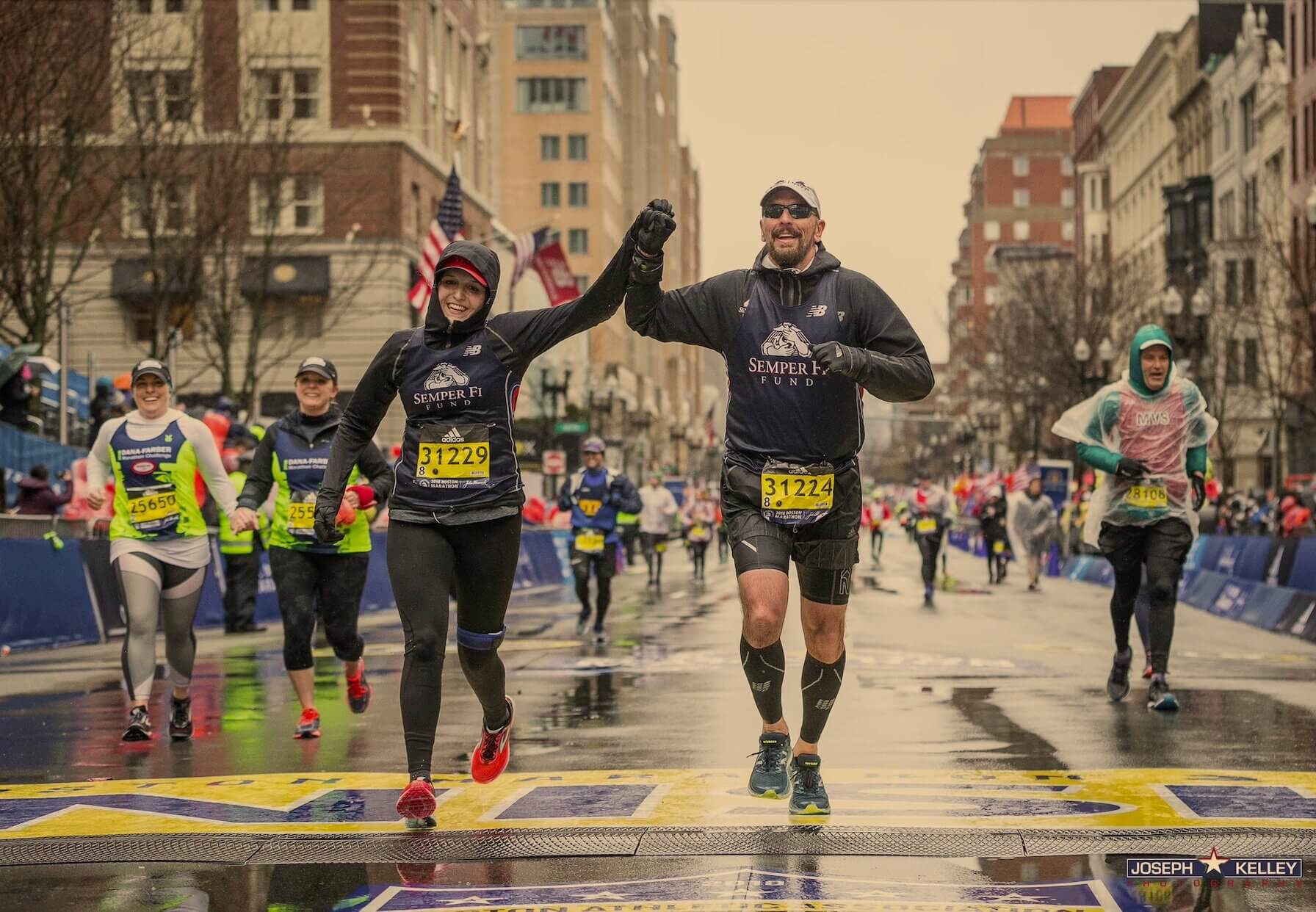Dave Fortier was running his very first marathon in support of a close friend battling cancer when the bombs went off. The terror attack at the 2013 Boston Marathon that afternoon killed three people and injured hundreds, including Dave, who suffered hearing loss and injuries from shrapnel.
He has since gone on to run 13 additional marathons in Boston, Paris, New York, Florida and Washington, DC. Dave’s passion for helping other survivors of terror and trauma eventually led him to found the One World Strong Foundation, where he now serves as president. This year, Life After Hate is teaming up with One World Strong’s Boston Marathon fundraising team in support of their amazing work. Learn more about it here, and please consider donating today!

Why did you launch One World Strong?
One World was organized by survivors of the 2013 Boston Marathon bombing in response to the incredible outpouring of support we received during our recovery. A big part of that recovery was simply connecting with others who had suffered similar injuries and were able to share their recovery stories with us.
These personal connections were provided to us by Semper Fi and America’s Fund, known as The Fund, and their military veterans. Through working with members of The Fund, we experienced firsthand the power of connection in building resilience and the importance of that in the healing process. In forming One World, we have been able to provide this type of connection to other civilians impacted by extremist and mass violence events globally.
What part of your work is least understood by the general public?
Many in the public hear about terrorist, extremist, and mass casualty events, and are horrified and angered by what they see. But we rarely see what happens after the attacks, when the healing process begins. Many survivors, families that have lost loved ones, and first responders recede into the background as the world inevitably moves on. Our mission is to keep those that have been directly impacted connected to others who personally understand their challenges and can assist in their healing process. We call this peer-to-peer humanitarian diplomacy.
What resources are currently missing most from the work you do?
As with many nonprofits that operate globally, our biggest resource challenges are the funding of services required to assist with support for the thousands of people impacted by terrorist, extremist, and mass casualty trauma-related events yearly.
How can people help, aside from donations?
Volunteers are always welcome – assisting with social media content and amplification, putting together local events for those impacted in the areas where they live, and helping us to identify and connect One World with those impacted by this type of trauma.
This is the first in-person Boston Marathon post-COVID. What does that mean for One World Strong?
The Boston Marathon is where this all started for us and the Boston Athletic Association has been kind enough to allow us entries each year for the Boston Marathon to use as a fundraiser for our charity team. This year is very special for us as we are expanding on programs with the U.S. Department of State and Homeland Security to assist with violence prevention programs here in the States and globally. Our marathon partners this year work within the prevention space, and we’re honored to play a small role in helping them to further their mission. At the end of the day, our hope is that there are fewer communities and families torn apart by violence. Our partners are doing all they can to make that a reality.

